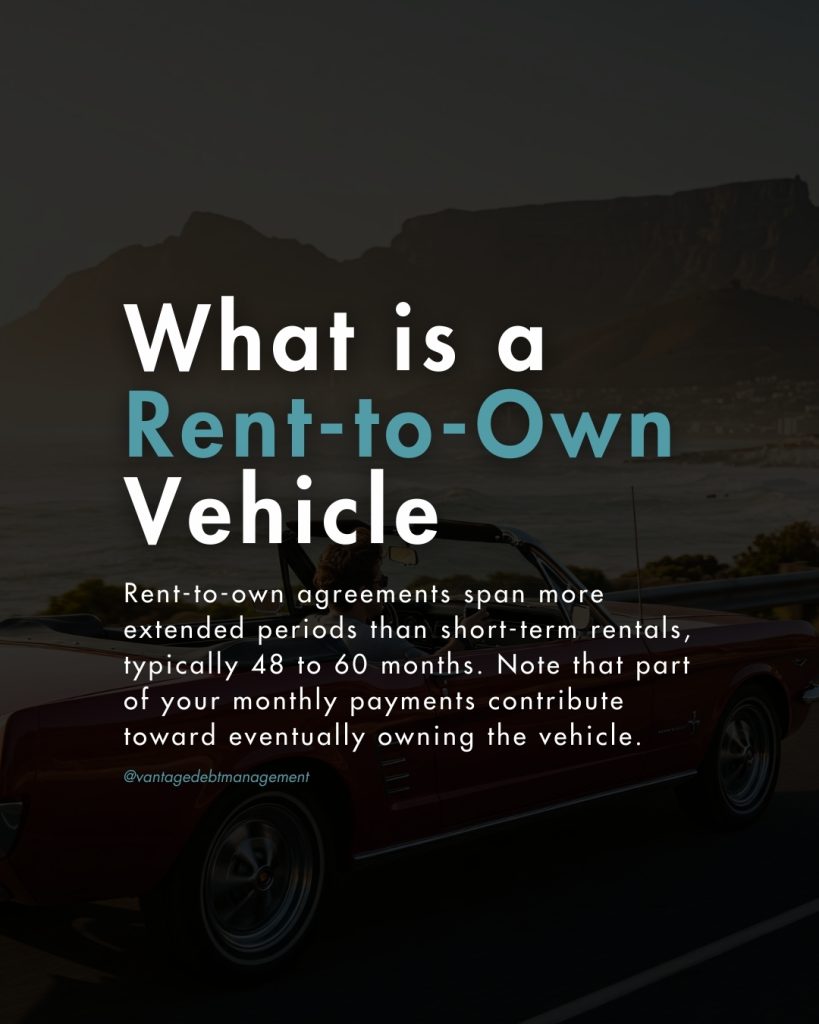For many South Africans, owning a vehicle is not just a convenience — it’s essential for work, family commitments, and daily life. However, the current economic climate is making car ownership increasingly challenging. Traditional car financing often presents obstacles, particularly for those with lower credit scores, individuals under debt review, or those without a substantial upfront deposit. A rent-to-own agreement in South Africa offers a practical alternative to help you get on the road. But how does this model work in our context, and is it the right choice for you?
Let’s explore the essentials of rent-to-own vehicles in South Africa and what you need to know.
What is a Rent-to-Own Vehicle?
People usually confuse rent-to-own with short-term car rentals. Rent-to-own agreements span more extended periods than short-term rentals, typically 48 to 60 months. Note that part of your monthly payments contribute toward eventually owning the vehicle.

Key features
Most of the South African rent-to-own plans bundle crucial costs into one manageable monthly payment, often including:
- Insurance: Covers damage and third-party liability.
- Vehicle Licensing: Ensures your car is legally registered.
- Tracking Device: Enhances security, which may be a contractual requirement.
- Optional Maintenance Plans: Some providers offer these as add-ons for peace of mind
The advantages of vehicle rent-to-own in South Africa
- The more straightforward qualification process makes the model more accessible than traditional loans, even for those with poor credit histories or under debt review.
- Simplified cost, with a single fixed monthly payment covering multiple expenses, makes financial planning straightforward.
- After fulfilling the contract, the clear path to ownership is that the vehicle is yours.
- Lower upfront costs typically require a smaller initial payment than outright purchases or bank loans.
Potential downsides to consider with vehicle rent-to-own in South Africa
- Higher overall cost. Due to interest and fees, total payments over the contract usually exceed the vehicle’s cash price.
- Binding contracts can lead to costly penalties if contracts aren’t fulfilled.
- Mileage limits are provided to users (annual kilometers), with extra charges for exceeding limits.
- Repossession risk is there for missing payments, which can result in vehicle repossession and loss of all prior payments.
- Limited vehicle choices compared to traditional dealerships.

Key providers of vehicle rent-to-own in South Africa:
Several companies serve the vehicle rent-to-own South Africa market, including:
- WheelWish is known for flexible terms tailored to various budgets.
- SA Motor Lease (affiliated with Pace Car Rental) offers a range of vehicles with bundled services and has embraced digital platforms for easier application and transparency.
- WeRentCars focuses on accessible financing for those with credit challenges.
Crucial questions to ask before signing a rent-to-own agreement in South Africa
- What is the total cost of ownership, including all fees and the final purchase price?
- What are the exact terms for transferring ownership at the end of the contract?
- What penalties apply for late payments or early termination?
- Are there mileage restrictions, and do they fit your driving habits?
- What does the insurance and maintenance coverage include?
- What is the vehicle’s condition, and can you inspect it beforehand?
- Who handles repairs not covered by maintenance plans?

A rent-to-own vehicle in South Africa presents a viable alternative for those facing barriers to traditional car financing. It offers easier access, predictable payments, and a clear route to ownership. However, it’s essential to weigh the potentially higher total cost and strict contract terms carefully. By thoroughly researching providers, scrutinizing the fine print, and aligning the agreement with your financial reality, you can confidently decide if rent-to-own in South Africa is the right path to mobility in Mzansi.
